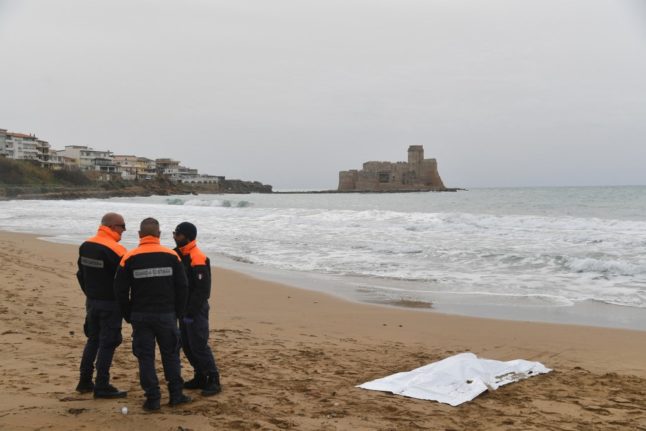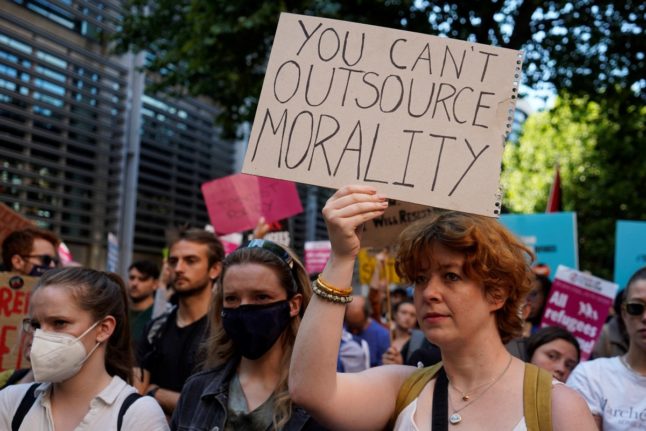The rescues came the same day as a body was discovered of the 74th victim of the deadly shipwreck nearly two weeks ago — that of a female child between five and six years of age, according to news agency AGI.
The February 26th shipwreck, which occurred just off the shore of Calabria, has drawn sharp criticism of the right-wing government led by Prime Minister Giorgia Meloni for its failure to intervene timely to save the boat.
The coastguard said Saturday it was wrapping up a large rescue operation that began Friday after three boats were spotted drifting off Italy’s coasts.
One was south of the Calabrian city of Crotone and two further south off Roccella Ionica.
Coastguard videos showed a large fishing boat pitching violently back and forth in nightime rough seas with dozens of people visible on the deck. Other images showed inflatable rescue boats approaching another fishing vessel
packed with people. Those 487 migrants onboard the first boat were safely brought to the port of Crotone at about 3:00 am Saturday morning, the coastguard said.
Another rescue operation in which 500 migrants were brought to safety aboard a coastguard ship was wrapping up, it said. News agency ANSA had earlier reported that the ship had docked at the port of Reggio Calabria.
A third boat carrying 379 people was rescued by two coastguard patrol boats and the migrants transferred to a Navy ship headed to the Sicilian port of Augusta, it said.
Italy’s defence ministry said it had begun to air transfers of migrants away from the crowded migrant centre on the island of Lampedusa, which it said was now over capacity.
The recent shipwreck has put the government on the defensive. On Thursday, Meloni held a cabinet meeting at Cutro, near the disaster site, and announced a new decree that included stiffer prison sentences for human traffickers, but no new measures to help save lives.
Her far-right Brothers of Italy party, which won elections last year, had promised to curb arrivals, but Italy has recently seen a sharp rise in the number of migrants attempting to reach its shores via the dangerous Mediterranean crossing.
The interior ministry says more than 17,500 people have arrived by sea so far this year — almost three times the number for the same period last year.
READ ALSO: Italian PM vows to crack down on traffickers at migrant shipwreck site



 Please whitelist us to continue reading.
Please whitelist us to continue reading.
Member comments